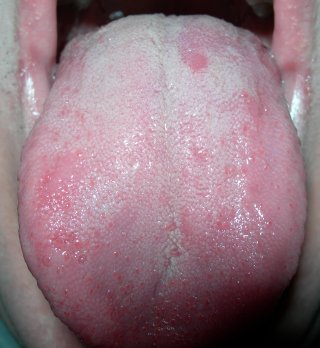Visiting a neighbor recently, I found her chatting in Armenian with a workman. I listened intently; I'd never heard Armenian spoken before. Noting my interest, the two speakers proudly informed me that their language was not related to any other. When I checked their claim on the Internet, I discovered, for one thing, that Armenian contains so many Farsi words, acquired during centuries of Persian influence, that early linguists mistakenly believed it was a Persian dialect. But I also found out that, though Armenian is a branch of the Indo-European family, the language evolved for thousands of years in the relative isolation of the Caucasus Mountains; it is, in fact, unlike any other.
My curiosity piqued, I poked around for other language-specific sites and found an instructive Web page created by C. George Boeree, a professor of psychology at Shippensburg University in Pennsylvania (www.ship.edu/ ~cgboeree/languages.html). I began by clicking on "Language Families of the World (maps)," and discovered a series of informative geographic charts, each one accompanied by brief but illuminating comments and statistics.
The "Archaeolink" Web site provides a page with numerous links to sites that specialize in linguistic anthropology (www.archaeolink.com/linguistic_anthropology_index.htm). Click on the very first link to find a transcript of the PBS NOVA television program "In Search of the First Language." The material focuses on the quest for the linguists' holy grail--Nostratic--a hypothetical tongue that some maintain was once the universal spoken language.
To show how parts of our modern alphabets evolved from pictographs and symbols, Robert Fradkin, a classicist at the University of Maryland in College Park, has developed a Web page of animated course material (www.wam.umd.edu/~rfradkin/alphapage.html). Click on the last item in his list, "The evolution of the Latin character set," and watch as Phoenician symbols from the tenth century B.C. slowly morph into our own ABCs.
For the latest on living languages, go to the Web version of Ethnologue: Languages of the World (www.ethnologue. com/web.asp), a compendium of information about the world's spoken languages, now in its fourteenth edition. Published by SIL International (an organization best known for Bible translating), the "Ethnologue" site is on a language-preservation mission; it lists, for the year 2000, a total of 6,809 languages spoken (but not necessarily written) worldwide.
A cogent introduction to the major language families of the world can be found at one section of a site operated by Kryss Katsiavriades and Talaat Qureshi, a well-traveled couple who work as computer-science professionals in London (go to www.krysstal.com/language.html# langfams and click on "Language Families").
Although it isn't as easy to listen to languages on the Web as it is to read about them, you can still find an eclectic range of audio experiences. An issue of the online magazine Exploratorium (www.exploratorium.edu/ exploring/language/index.html) has five pages on the evolution of language that include several links to audio files. Listeners who go to Haukur Thorgeirsson's online course in "Old Norse for Beginners" (www.hi.is/ ~haukurth/norse/) can hear epic poetry recorded in Old Norse, as well as in Icelandic and in English (click on "Recordings" on the main page, and then on "Vellekla").
For something more contemporary, Transparent Language, Inc., which sells learning software, offers some language and culture pages at its online site (www. transparent.com/languagepages/languages.htm). You can listen to the pronunciation of useful, common words and phrases in thirty different tongues. And www.every tongue.com, which is affiliated with SIL, offers a relatively long audio sample of nearly a hundred different spoken languages, from Armenian to Zulu. Not surprisingly, most of the passages are readings from the Bible.
ROBERT ANDERSON is a freelance science writer living in Los Angeles.
COPYRIGHT 2004 Natural History Magazine, Inc.
COPYRIGHT 2004 Gale Group



